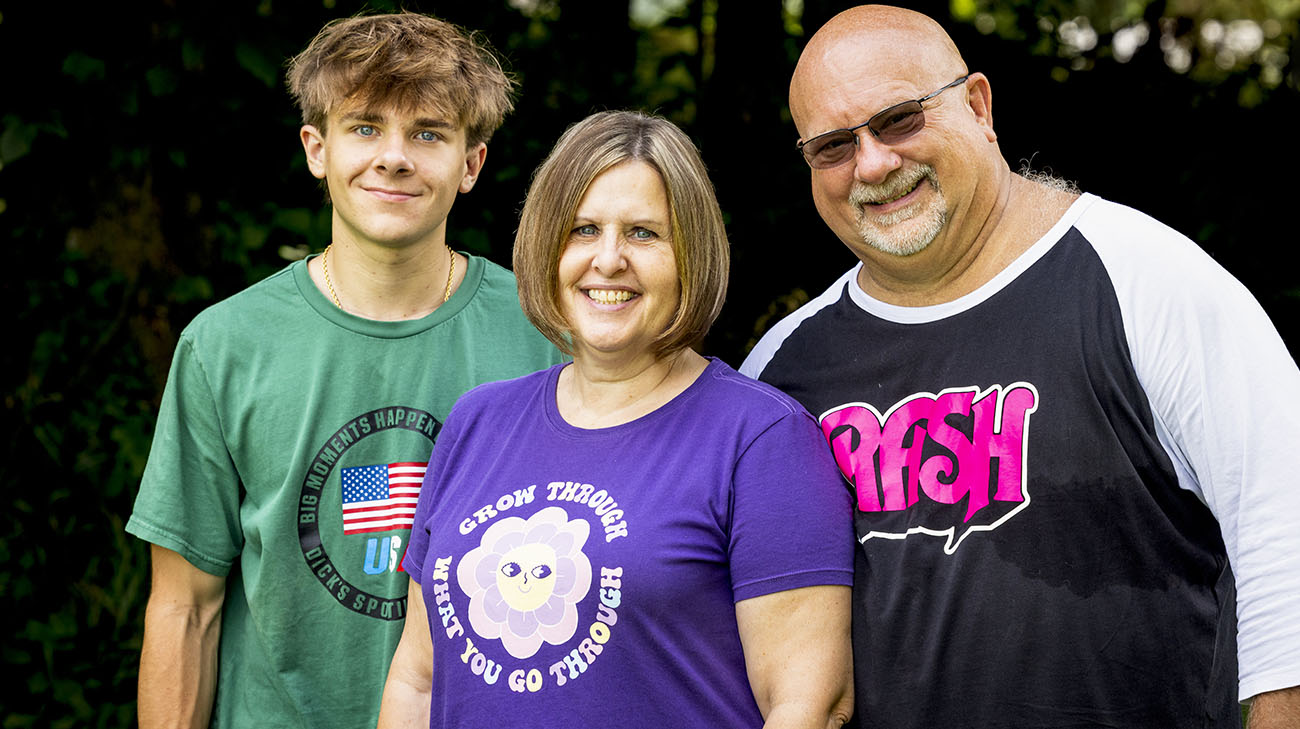
After 23 years as an intensive care unit and emergency department respiratory therapist, Melissa Schrader wanted a new challenge, taking a job performing pulmonary function tests.
But after several years, Melissa began to have difficulty with math, an important part of her job, so she began relying on a calculator. Melissa thought it was a combination of stress and menopause.
“Smart people find a way to get around a hindrance,” says Kevin Schrader, Melissa’s husband, advocate and caregiver. “She was using a calculator for everything.”
It was noticed at work, too, so Melissa underwent a “fitness for duty” exam. Based on the results, and with her well-being in mind, the decision was made for her to step away from her position.
Melissa and Kevin saw her primary care physician and a neurologist to figure out what was happening.
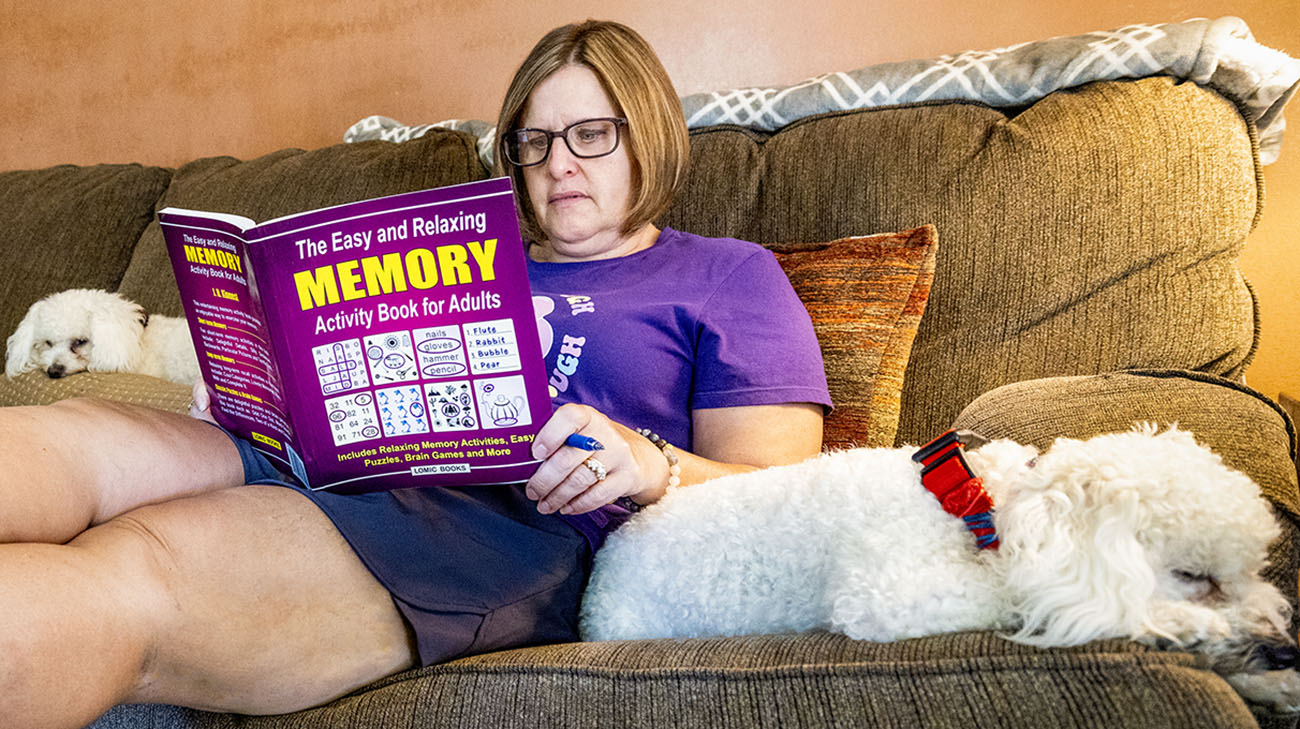
Melissa engages in puzzle activities to support cognitive stimulation as part of her Alzheimer's care. (Courtesy: Cleveland Clinic)
One difficult realization came when Melissa was asked to do a “clock drawing test,” which assesses cognitive function and detects potential signs of dementia. When Melissa was finished with the task, Kevin says he bit his tongue, looked away and cried. “The numbers were all jumbled. It looked like a Picasso.”
Over the next six months, Melissa underwent a series of tests and evaluations. Spinal fluid confirmed the probability of Alzheimer’s disease, even though Melissa was just 55 and had no family history of Alzheimer’s.
“The majority of patients with neurodegenerative conditions are diagnosed with Alzheimer’s later in life -- past the age of 65 in their 70’s or 80’s,” says Kasia Rothenberg, MD, a geriatric neuropsychiatrist at Cleveland Clinic. “In younger patients (under 65), it is difficult to diagnose because it is not common. This makes it challenging to receive insurance coverage for the necessary diagnostic procedures needed to render a diagnosis.”

Melissa takes medications to help slow disease progression, manage symptoms, and support her quality of life. (Courtesy: Cleveland Clinic)
Dr. Rothenberg says early-onset Alzheimer’s is usually atypical and definitely complex. “We are very thorough and precise,” she says. “We make sure to check everything and that takes time. We need to exclude everything else before a diagnosis is made.”
In February 2025 when all the tests and evaluations were complete, Dr. Rothenberg says the diagnosis was conclusive – Melissa had early-onset Alzheimer’s disease.
Then the process of planning her treatment started. It included composition of medications which target the problem from different angles as well as therapy and lifestyle modifications.
In the spring of 2025, Melissa started receiving lecanemab, an FDA-approved treatment for patients with mild, early-stage Alzheimer’s.
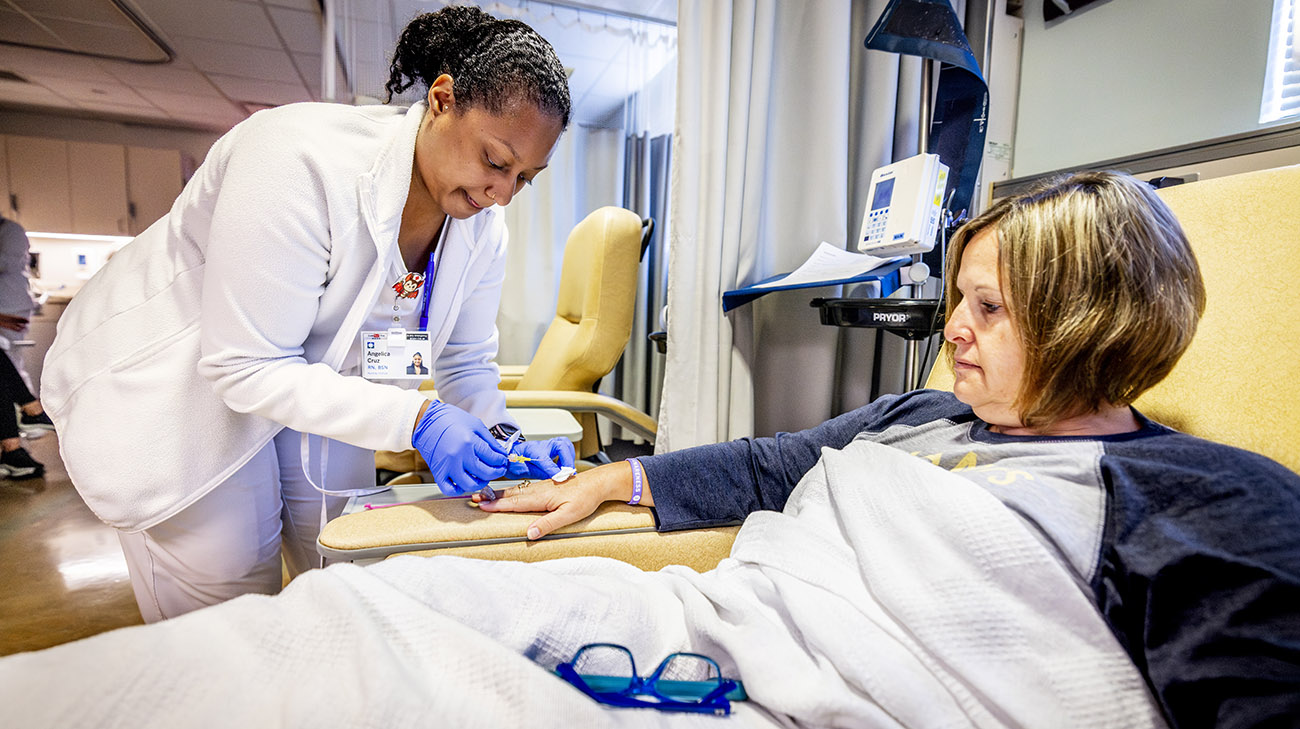
Melissa receiving a lecanemab infusion at Cleveland Clinic Mellen Center. (Courtesy: Cleveland Clinic)
While not a cure, lecanemab has been proven to slow the progression of the degenerative brain condition. The drug is effective in gradually removing abnormal buildup of amyloid beta, a protein linked to the plaques found in the brains of individuals with Alzheimer’s.
The course of treatment for Melissa includes 36 infusions, two times each month for 18 months. Her care team monitors her before, during and after each infusion for side effects. Brain scans are also done periodically to check for brain bleeds or disease progression.
“Melissa is tolerating it well, but it is far too early to say there is a benefit,” says Dr. Rothenberg. “If the brain scans show no changes, it’s a good thing. We can’t eliminate the disease, but we can maintain the status quo.”
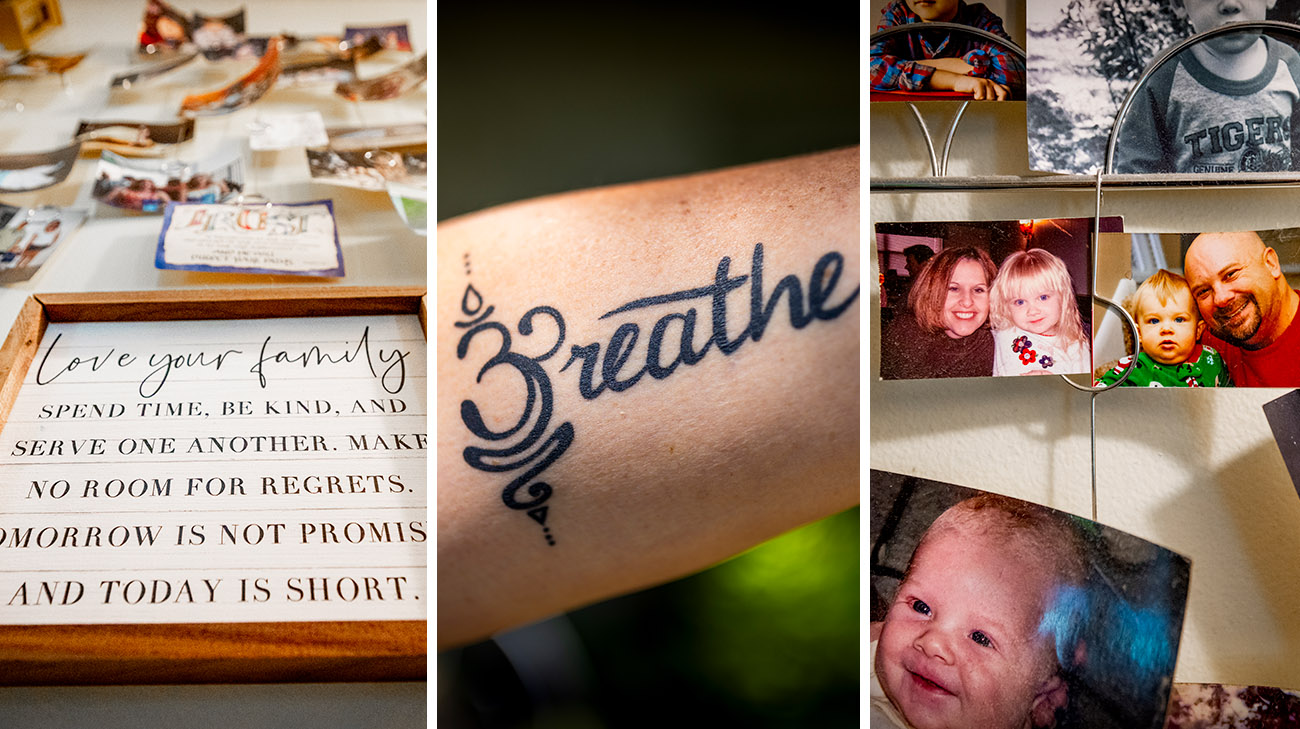
Melissa and Kevin remain thankful for each day they have and continue making memories. (Courtesy: Cleveland Clinic)
Melissa and Kevin are thankful for the level of care and support from physicians, nurses, support staff and everyone they have interacted with at Cleveland Clinic. “Overall, they’ve been wonderful and very helpful,” Kevin says.
Since Melissa’s diagnosis, she and her family try to live as stress-free as possible because stress elevates Melissa’s symptoms. “If I can keep her happy, her memory seems to be better,” Kevin says.
“Before any of this happened, we were pushing toward retirement,” Kevin says. “Everything just got fast-tracked and we are adjusting to a completely different life.”
Kevin transitioned jobs and now has his own photography business. He controls his schedule so he can accompany Melissa to her appointments.
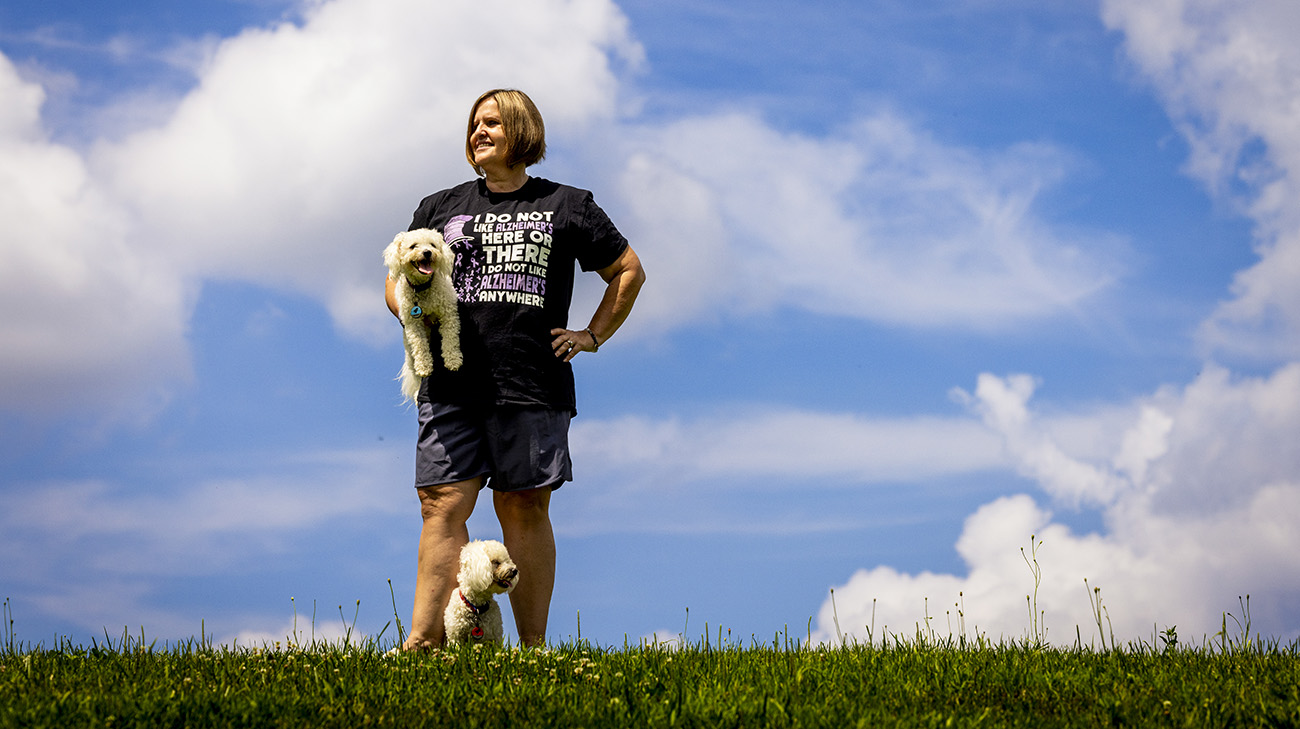
Melissa, Kevin, and their family take one day at a time as they navigate Melissa's journey with early-onset Alzheimer's. (Courtesy: Cleveland Clinic)
Kevin continues to handle the finances and most of the cooking. “At this point, things haven't changed too much,” he says.
They live on three acres in Suffield Township, Ohio, with their son Kaden, 17, and their two dogs, Jet and Rocket. Their daughter Sydney, 23, has an apartment nearby.
“We do what we want now,” Kevin says. “We spend time together and take vacations.” Some are short getaways, while others are bigger trips.” Kevin, Melissa and family members – 17 in all – took a Caribbean cruise in February 2025.
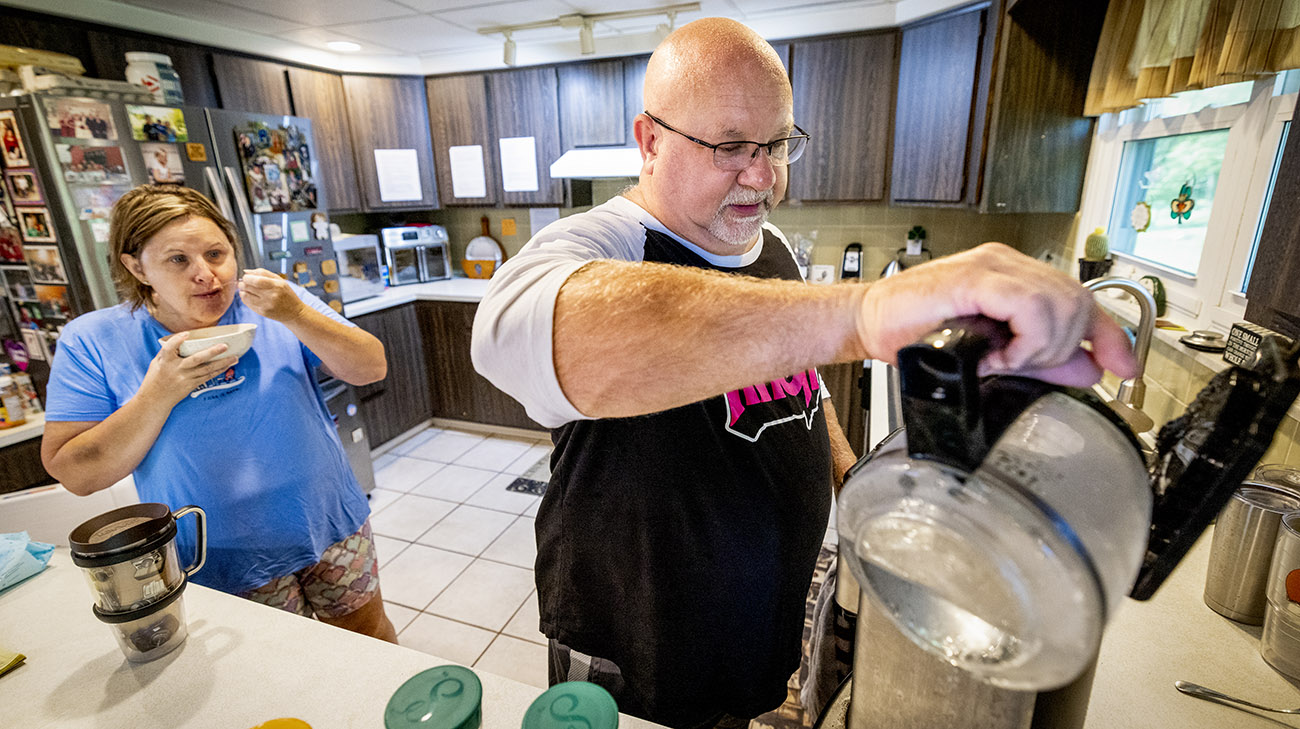
Establishing a daily routine is an important way Melissa helps manage her early-onset Alzheimer's. (Courtesy: Cleveland Clinic)
The couple also took their kids and dogs on a road trip out west for a couple of weeks in August. Melissa says she enjoyed the beautiful scenery, but it was a long trip there and back. She laughs when she says 6,000 miles in the car was not relaxing.
Staying connected to family and friends is important to Kevin and Melissa. They also meet with close friends on their own for dinner and conversation. “I can blow off steam with my buddies when we play cards,” Kevin says. “It helps to talk through everything.”
Kevin and Melissa’s morning ritual is letting the dogs out to play in the backyard, while they relax in their hot tub with coffee. “You wake up each day, and you don’t want to think about it,” Kevin says.
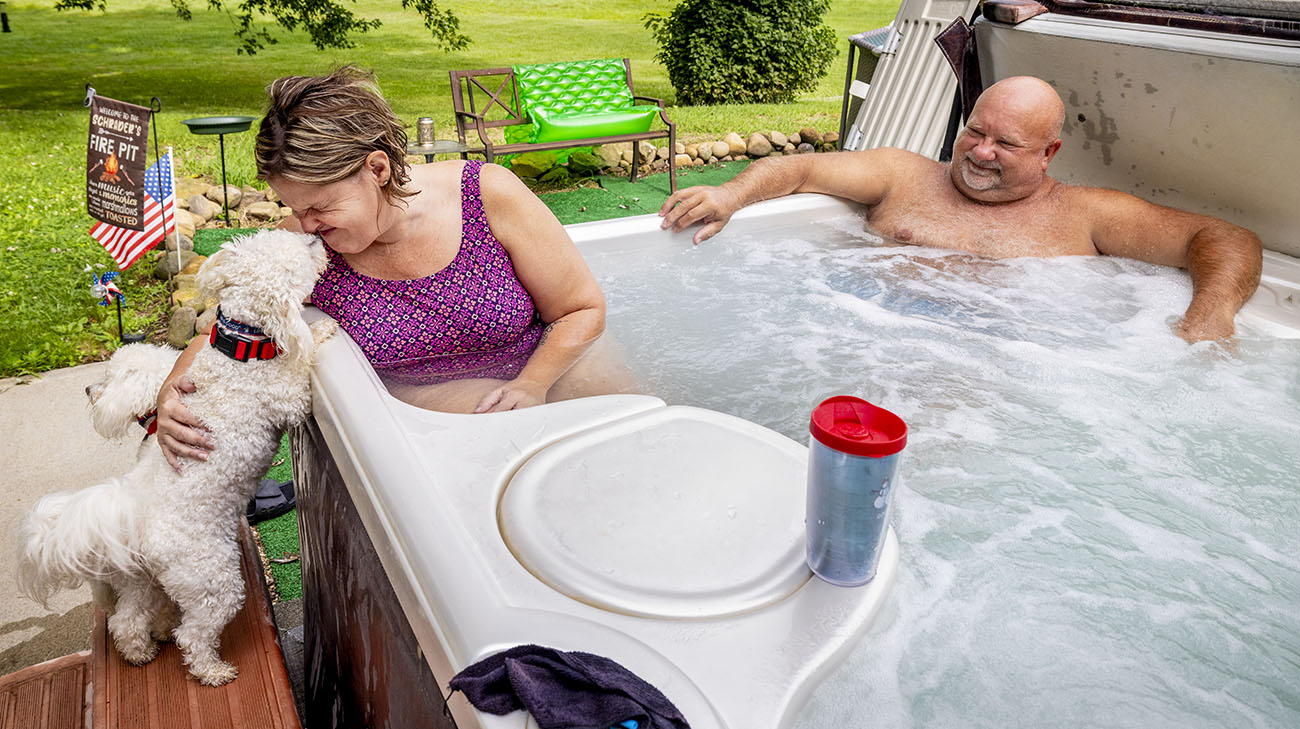
Melissa and Kevin use their hot tub frequently as a way to reduce stress and improve circulation. (Courtesy: Cleveland Clinic)
For caregivers facing similar circumstances, Kevin says take time to let the diagnosis set in, then work on planning for the future while your loved one is still able to participate in making decisions. “Get as much done as possible while you can talk about it,” Kevin says. “It’s not fun, but you have to do it. And pray for patience. As this disease progresses, you will need more and more of it,” he adds.
Alzheimer’s disease is like a long goodbye, Kevin says his physician told him. “We are still in fairytale land now. There’s still hope that it’s not going to happen, that her symptoms won’t get worse. We know the odds are against us, but we are trying to live as best we can for as long as we can.”
“I’m not stopping,” Melissa says, “I’m going to keep going, taking it day by day.”
Related Institutes: Neurological Institute

